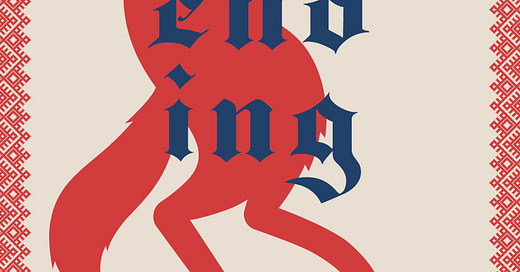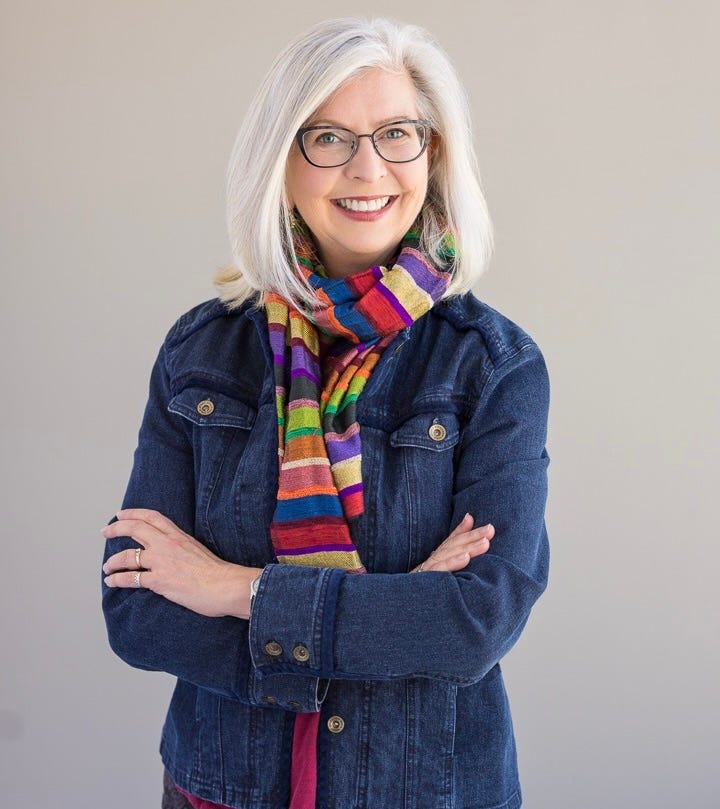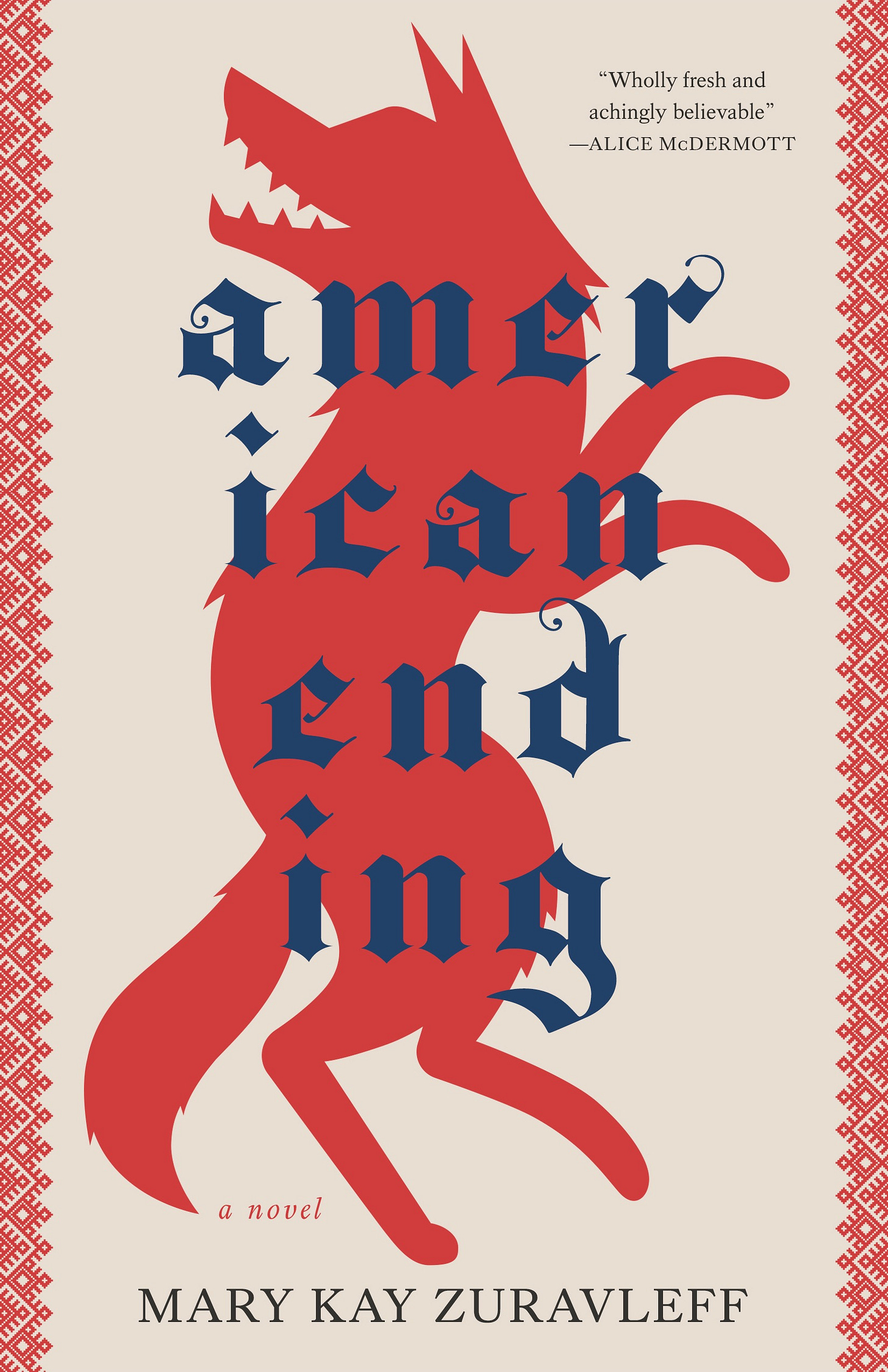Mary Kay Zuravleff on how she ended up circulating her new novel, AMERICAN ENDING, in serial form
And why she calls it her "Get Well" novel
There is great joy—and frankly, relief—in my circles today, as my fourth novel American Ending hits the stands. While my previous novels trafficked in absurdity and invention, this one is personal. I was inspired by my grandparents on both sides, Old Believers of the Russian Orthodox faith who worked in the coal mines of Southwestern Pennsylvania. I’d never written historical fiction or a first-person novel before, which was a challenge, as was using language that was appropriate for 1910, Yelena’s age, and her family’s lack of education and English. Along the way, the publisher of my previous books turned it down, as did my long-time agent, and I had to scramble for a new home. All these drafts later, I’m happy to report that American Ending was named to Oprah’s Spring Reading List!
Several critics have praised the book for being a good, old-fashioned novel, but let me tell you something more old-fashioned than a family story chronologically told. As I was making my way through rewrites, I sent my novel out in serialized form during the pandemic to one sick friend. Because I couldn’t show up at her house with soup or a shoulder to cry on, I mailed her a chapter a week. I used my novel as an extended get-well/thinking-of-you card.
In the heyday of serialized novels, Dickens famously launched his characters on adventures before he’d figured out where they’d all end up, and fans of The Old Curiosity Shop stormed both the Boston and New York docks in 1841, eager to learn of Little Nell’s fate. And did you know Middlemarch was serialized in Harper’s Weekly starting in late 1871?
In our own day, COVID hit the week before my best friend from childhood was diagnosed with breast cancer. Lori, an unabashed optimist and the mother of seven kids, called to tell me the “good news”: her tumor was a tad bigger than 1 cm, which classified her as Stage 2 and meant they could operate despite COVID precautions, followed by chemo and radiation. In addition, one of her children was struggling with substance abuse. I wanted to comfort her something fierce, and though she lives only 100 miles from me, she could have been down the block and I wouldn’t have been allowed anywhere near her. So I called, texted, and ordered her some cute hats.
Growing up, Lori was such a voracious reader that she made me a reader, which in turn made me a writer, so I owe her a lot. Wondering what books I could send her, I started gathering recommendations from friends who had been through what she was about to face. And then I called her with this question: Would she like to be part of an elite subscription service—as in one person—to receive my novel in installments? Yes, oh yes, please, was the answer.
I mailed her the first three chapters that day to read while she recovered from surgery, and then I mailed her a chapter or two a week, which she toted to her chemotherapy appointments. As the chemicals dripped their way into her veins, she followed the travails and triumphs of my young heroine, and she wrote me her very personal response, including stories I’d never heard in our 50+ year friendship! Reader, she recovered, and when COVID abated somewhat and vaccinations were had, we were able to get together for an actual lunch, outside, where I could buy her a bowl of soup!
That elite subscription service of one turned to two when my friend Sarah got wind of the arrangement. Sarah lives in the UK, where COVID hit especially hard, and she was caught between caring for and being kept from her aging parents. Every day was an ethical and public health dilemma. Her father, who was unable to understand the state of the world, was suffering mightily. “How could someone be reading your novel and it isn’t me?” Sarah asked. So the elite subscription service doubled. As did stories I’d never heard from a long-time friend. In this case, it was about her great-grandfather being killed in a Cornish mine.
The subscription service grew to include my mother, because she’s my mother, my friend Miriam who was managing care for both her ailing mother and her ex-husband, and my dear friend Karen who had lost her brother. And then my friend Olivia said, “Do you have to be in pain to join?” And I added her to the list.
All in all, seven people read American Ending in chapters, and I got to hear them respond in real time to the book I was assembling and improving. I’d be walking the dog and get that text ping! that stops you in your tracks. Olivia was worried that Yelena would be married off at 14; Miriam was laughing at the Thanksgiving celebration put together like the Stone Soup story of yore; my mother was wondering how I’d remembered the story of her first confession. That last one came in a phone call, because who are we kidding about Mom being able to text.
But the upshot was, as is so often the case with reaching out to people, that I’d started this to let people I loved know I was thinking about them, and here they were telling me how much my words mattered to them and how my invented story brought up stories they were moved to tell me. They all said they looked forward to the day my novel would find its way into the world—that’s today—and yet there’s no sweeter feedback I could get than what they’d given me.
You can support this newsletter by ordering books through my shop on Bookshop.org. https://bookshop.org/shop/openbook





What a beautiful story! If only distribution were so natural and filled with friends/ad-hoc editors. 😉